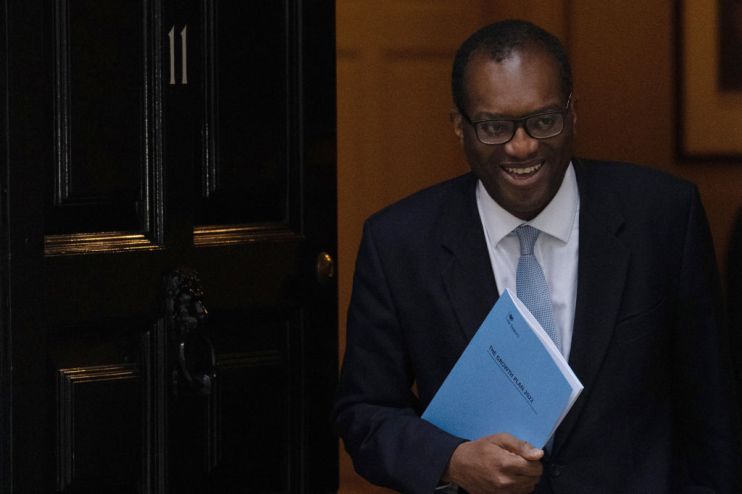Think-tank: Kwarteng budget “less out of control than the market thinks”

ONE of the country’s leading economic think-tanks has described estimates that Kwasi Kwarteng’s package of tax cuts in last week’s mini budget could cost £45bn as a “gross exaggeration.”
The package has gone down badly with both markets and politicians, with the cost of UK borrowing spiking due to concerns over runaway government spending.
However the Centre for Economics and Business Research said today that the package is more likely to sit around £25bn.
The CEBR said “public borrowing may be less out of control than the markets think.”
The group’s deputy chair said the Treasury’s estimates of the costs of the package were “overblown,” particularly the scrapping of a planned hike in corporation tax.
“It seems inconceivable that had UK corporation tax been raised to one of the highest levels in the western world it would have brought in anything like the extra £19bn that the Treasury have estimated for 2026/2027,” wrote the forecaster’s deputy chair, Douglas McWilliams.
“A figure around half that seems a much more plausible estimate,” he continued.
The CEBR also believes the Treasury has overestimated the borrowing impact of scrapping the top rate of tax and the reintroduction of VAT relief four tourists.
“CEBR has done detailed research on the cost of the reintroduction of the VAT relief and our estimates show that this will raise revenue, not cost the £2bn in the Treasury sums, as the UK will attract additional numbers of tourists.”
McWilliams went on to say that the Treasury figures produced alongside Kwarteng’s budget take no account of fiscal drag, noting that income tax will go up for those on incomes below £155,000 as a result of fixed thresholds.
And the CEBR also note that the price of energy is falling, reducing the impact of the government’s energy price guarantee on UK borrowing.
The CEBR’s initial estimate of government borrowing in 2023/24 was £154bn but their new calculations suggest it will instead be around £64bn.
“It would appear that the Chancellor has managed to burn his reputation for fiscal prudence for no good reason at all. He would have been so much better advised to have done his sums before presenting his budget to the markets,” McWilliams wrote.